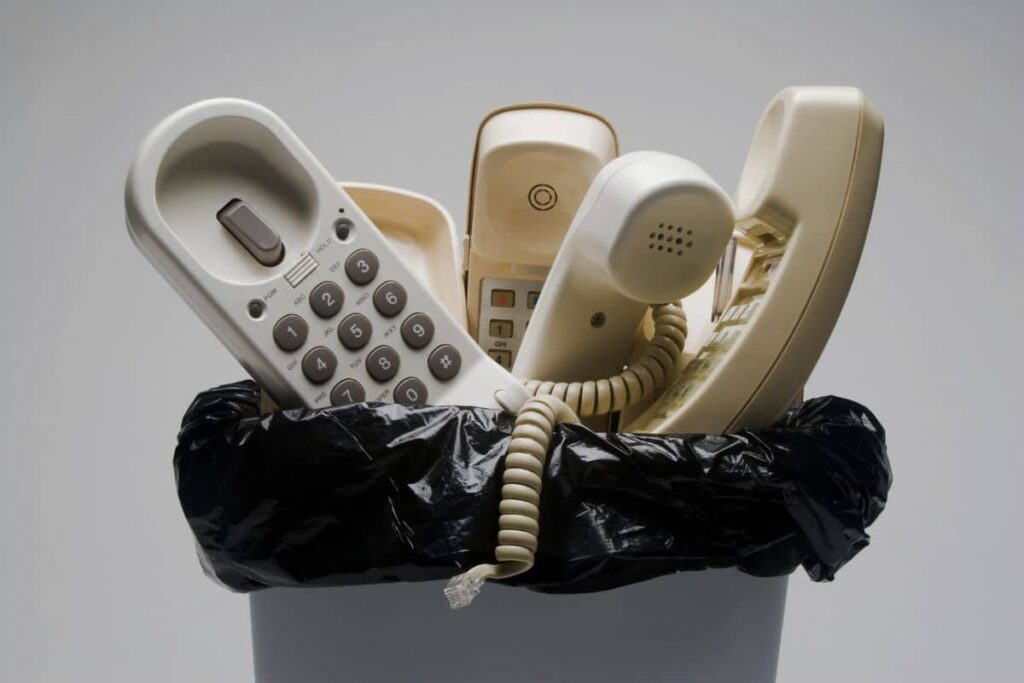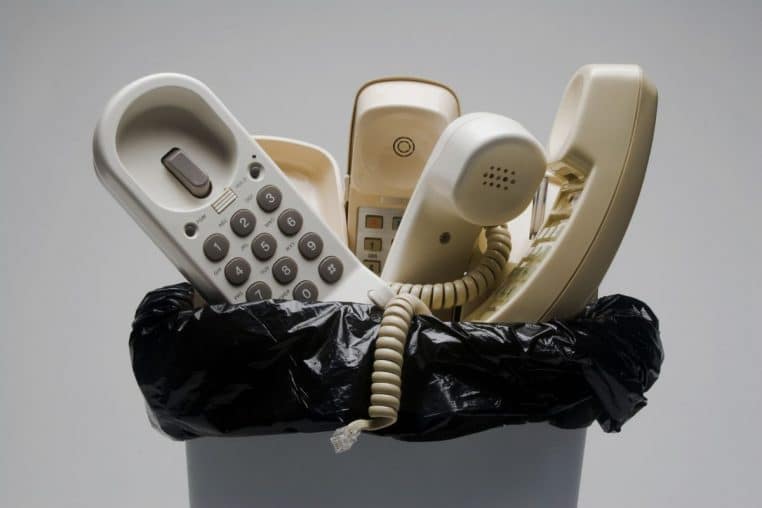In the near future, many people will no longer be able to use their landline phone. It is soon set to disappear in several French municipalities; is yours one of them?
Rapid human evolutions
Time flies quickly along with new inventions. Over the last century, especially since the industrial revolution, everything has moved at an incredible pace. We’ve transitioned from oil lamps to electric lighting, from steam trains to diesel, and medicine has made significant strides…
Our human society has reaped the benefits of our engineering nature. Vaccines, new medications, Ford’s assembly line, dishwashers, social networks, space travel, and not to forget artificial intelligence— it’s impossible to list everything.


The telephone, a perfect example
And, the telephone is an excellent example of this rapid evolution. It was a true revolution. From its inception, much like television, not everyone had access to a telephone.
Previously, with the old handsets, you would call an operator, provide the address, and they would connect you to the recipient. Now, our mobile phones often take better pictures than digital cameras and provide access to the internet, an unlimited encyclopedia.
The telephone is a communication device that allows human voices to be transmitted across distances. Essentially, the telephone has made communication easier and accelerated social and societal processes (hiring, checking up on someone, calling for help).
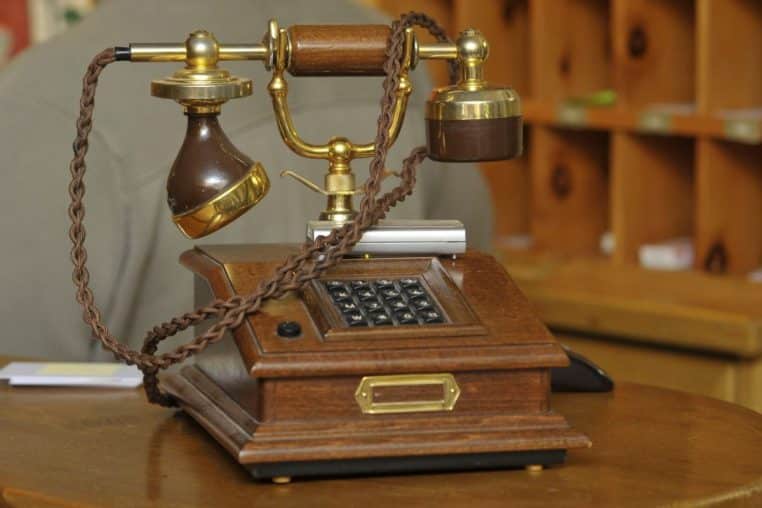

In France, in 1876, the telephone made its first appearance. However, it took over 40 years for it to become widely used. Prior to that, in 1854, Charles Bourseul, an employee of the telegraph administration, published an article in L’Illustration titled “Electric Transmission of Speech.”
During the same period, others discussed the concept. For instance, the scientist Philipp Reis is attributed with coining the term “telephone” in 1861, just a few years before the first prototype was developed.
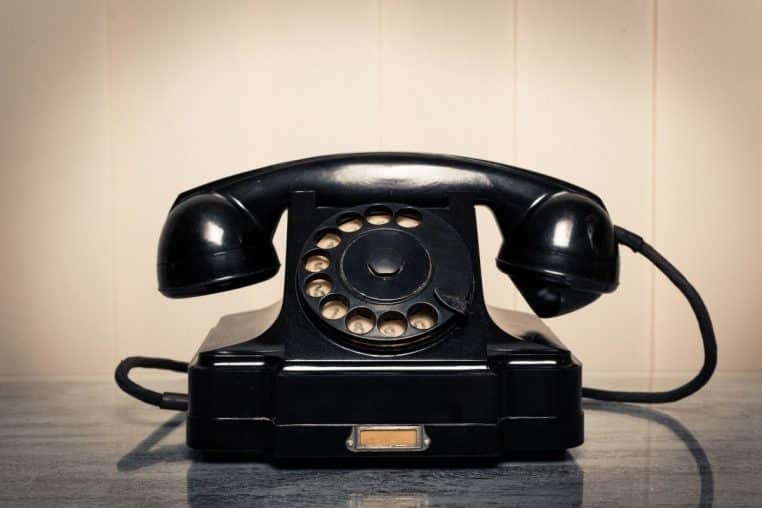

A vague invention and a revolution
From 1849 to 1870, the Italian Antonio Meucci also created several devices and even filed a patent application in 1870. He had entrusted his prototypes to Edward B. Grant, vice president of the American District Telegraph Company of New York.
However, Grant lost them without the help of the laboratory where Alexander Graham Bell worked. Like many inventions, the telephone’s creation was also attributed to someone else, the famous Alexander Graham Bell.
Six years later, the inventor Elisha Gray submitted a patent application for a device that would enable the “transmission and reception of the human voice electronically.” Unfortunately for him, he filed just hours after Alexander Graham Bell.
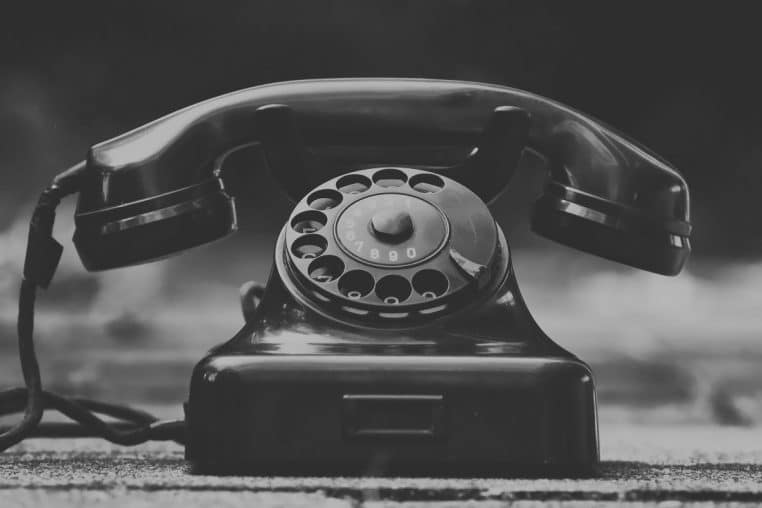

Alexander Graham Bell is then recognized as the official inventor of the telephone. A year later, the USA began manufacturing phones, as did other countries, including France in 1879.
Ultimately, in the midst of World War I, there were 12 million telephone lines globally. Only the wealthiest individuals could afford them initially. At that time, landline phones were manual.
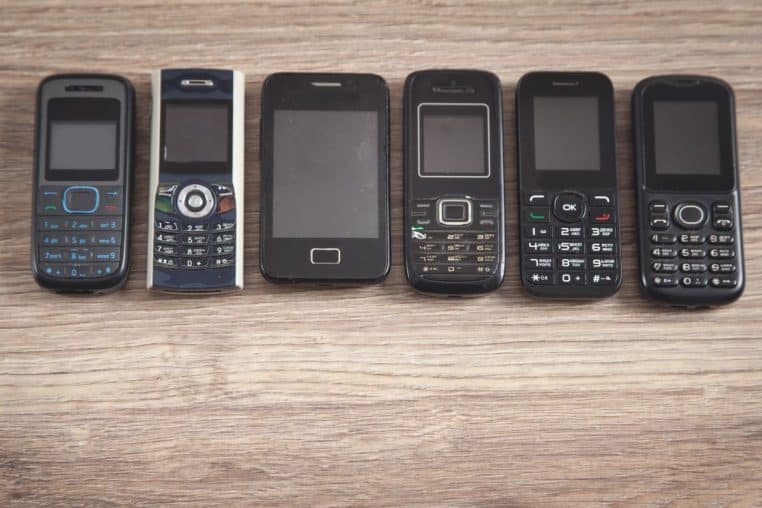

People would call and be connected to operators who would link the caller to the intended recipient. Then, around 1890, the automatic telephone was introduced, thanks to Almon Strowger in the United States. The first automatic switchboard was tested in France in 1912.
Although landline phones are still in use, they have been overshadowed by mobile phones. The mobile phone emerged in the 1950s, and as you know, this led to the creation of the smartphone, a device capable of taking photos and browsing the web. We all remember the first iPhone.
Landline eclipsed by mobile phones
Nowadays, everyone uses a mobile phone. In fact, due to this, the landline phone is becoming increasingly obsolete. “Studies revealing the decline in landline use in France are multiplying,” reports Midi Libre.
“By the end of 2021, Insee released its findings regarding the habits of French citizens with their phones. The result: 77% of residents stated they owned at least one landline phone at home,” the site continues. That’s a declining figure.
It’s worth noting that a landline phone cannot be taken everywhere with you, unlike a smartphone, which acts like a second brain, bringing the world to your fingertips. Moreover, due to its current accessibility, smartphone addiction has become a serious issue.
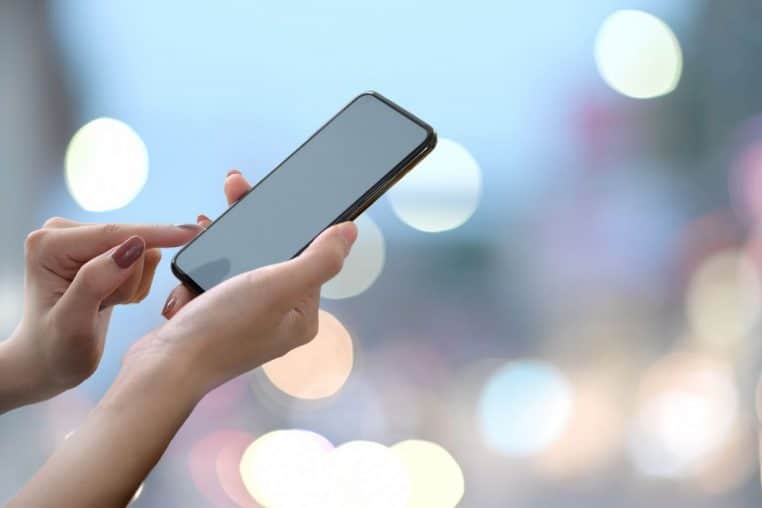

Services becoming obsolete
As times change at an incredible pace, many of our familiar objects and services are becoming obsolete. For instance, with fewer letters sent, La Poste is considering evolving its service.
Meanwhile, with e-commerce on the rise, physical stores are closing one after the other. This is evident with the recent closures of Intermarché stores. The same issue is occurring with bank branches, which are experiencing a decline in clientele. Consequently, many banks are shutting down.
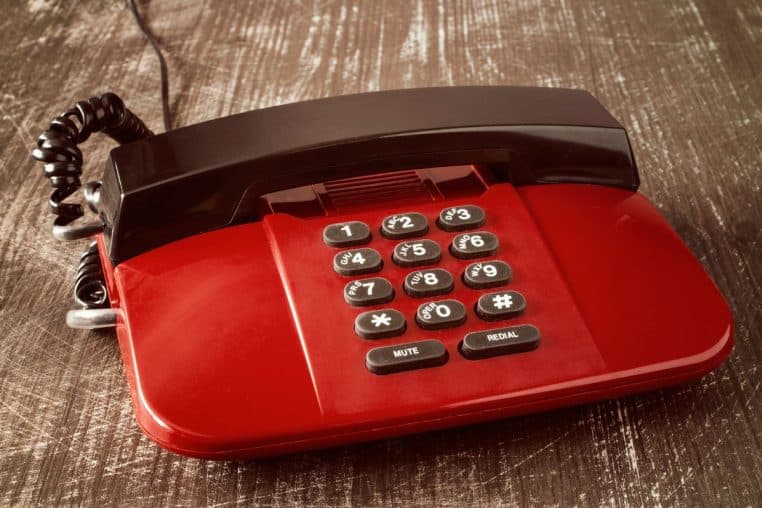

Our habits are changing; digital is replacing paper. Recently, even our ID documents are available on our phones. Identity cards with France Identité, along with dematerialized health cards, and digital registration certificates are now commonplace.
Even today, with mobile phones being ubiquitous, SMS is also becoming obsolete. Many people now prefer to communicate via messaging apps linked to the internet, such as Messenger, Instagram, WhatsApp, Discord, etc.
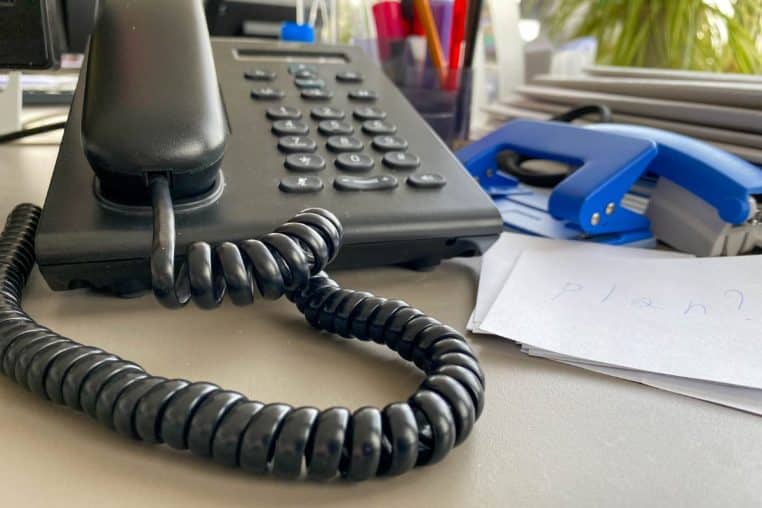

The end of ADSL, transition to fiber optics
Among the current and upcoming changes, there’s also the end of ADSL. In fact, soon France will phase out ADSL, deemed too slow. Fiber optics will replace ADSL, and many municipalities will be disconnected.
“The network will be switched off in 5000 municipalities,” as we explained in the related article. “From 2023 through 2030, the copper network of Orange, used for landline telephones, Internet (ADSL, SDSL, VDSL), and TV, will gradually disappear,” adds Orange.
Orange is in charge of the network, but this affects you even if you are with another provider. “The shutdown of the copper network will occur progressively by identified geographical zones every year,” they explain.


“In this context, commercial operators will offer their clients assistance in transitioning to fiber optics or a suitable alternative.”, explains Orange.
“Starting from the year 2026, no operator will be able to offer their customers a connection based on any XDSL technology (ADSL, SDSL, VDSL) or a telephone subscription utilizing the copper network. By 2030, offers based on copper technology will no longer exist in France,” clarifies the information.


Many fixed lines disconnected in France
With the end of ADSL, landlines are also seeing their last days. “In total, over 9000 municipalities will see their landline service disappear,” explains Pleine Vie.
No need to panic, however; you can still have a landline phone with fiber! But since it’s used less frequently, many may choose to skip it. According to Orange, “the end of the copper network does not equate to the end of landline telephony.”
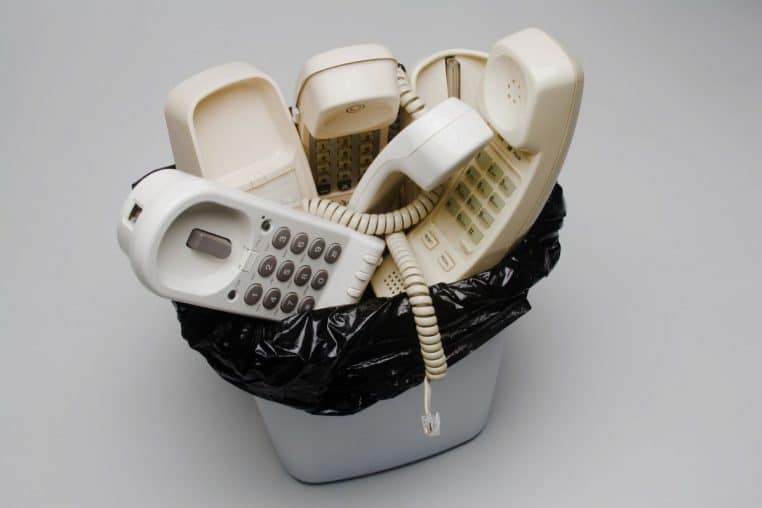

“So you can continue to benefit from a telephone service following the installation of fiber at your location to keep calling your loved ones. If you only use your landline, the same offers exist on fiber, at the same price…” is the message from the number one operator in France.
“As long as your phone isn’t too old. Don’t hesitate to seek assistance from your advisor in this process,” the leading operator in France adds. Also, to find out if your municipality will be impacted, visit here.
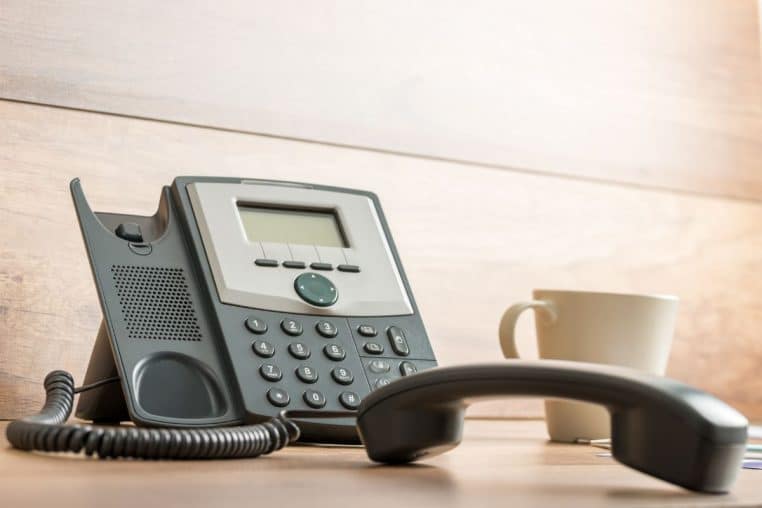

Don’t wait to switch to fiber
“You will need to migrate your services to a similar subscription on a fiber line, but possibly, in the short term, to an alternative technology presenting equivalent very high-speed performance,” continues Orange.
“Do not hesitate to contact your commercial operator or log into your customer area to learn more about the available fiber optic offers,” the operator writes on its website.
Don’t wait until the last moment. ADSL will soon become obsolete; take the initiative and have fiber installed at your place as soon as it becomes available.

